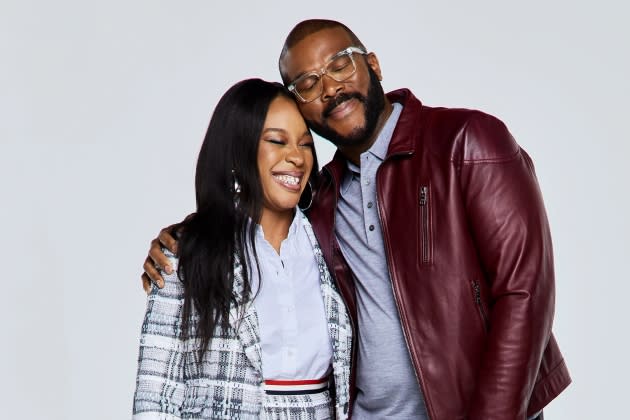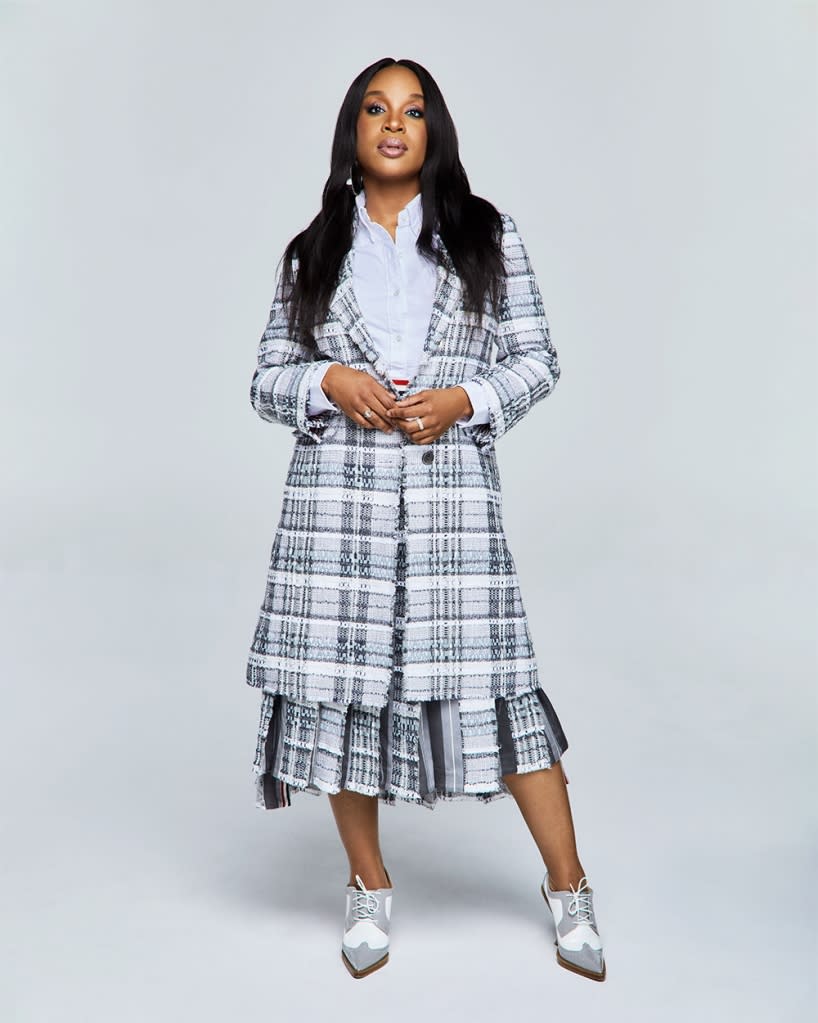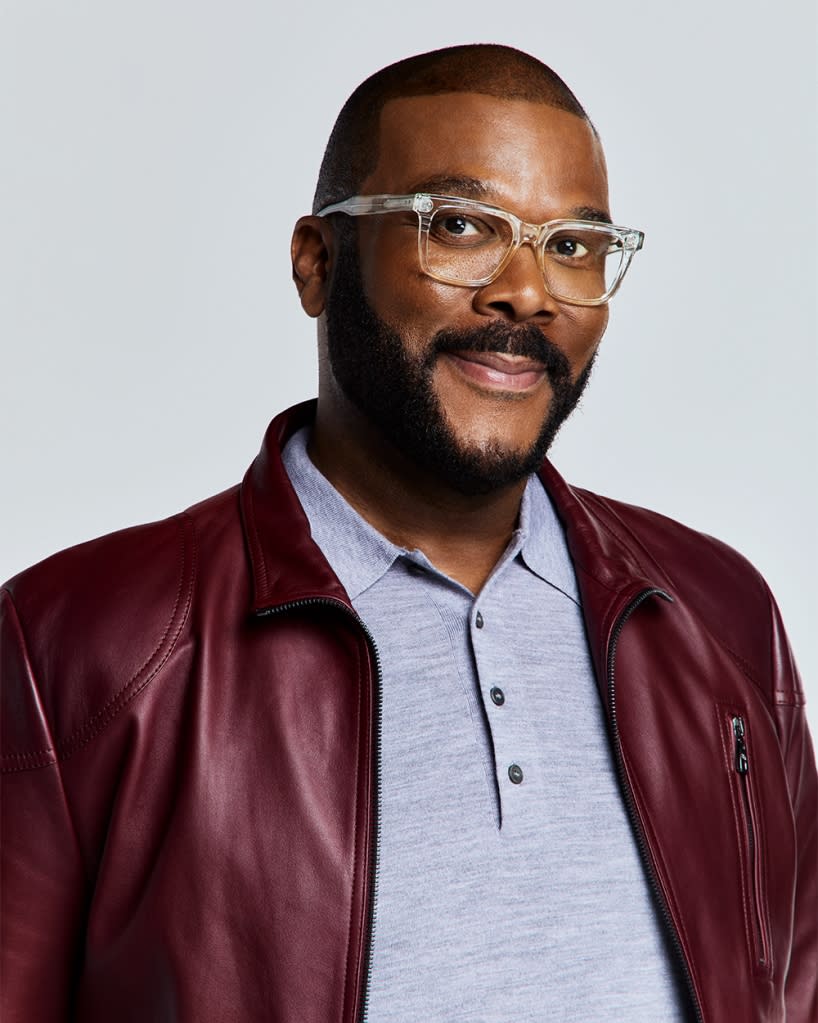‘This History Is Being Erased’: Tyler Perry and Chinonye Chukwu on ‘Till’ and Why Black Directors Keep Telling Stories From the Past
- Oops!Something went wrong.Please try again later.
- Oops!Something went wrong.Please try again later.
- Oops!Something went wrong.Please try again later.
- Oops!Something went wrong.Please try again later.

While Chinonye Chukwu was filming “Till” — which tells the story of Mamie Till-Mobley’s relentless pursuit of justice following the lynching of her 14-year-old son, Emmett Till — she spotted someone she didn’t recognize visiting with the film’s producer and star Whoopi Goldberg on the Atlanta set. “I see this tall man. I was like, ‘Who is this?’” Chukwu recalls. The mysterious visitor was Tyler Perry.
“I came in to support,” Perry explains as the two filmmakers sit down. “I just wanted to let you and Whoopi and everybody else know that anything I could do, I was there 100%. Atlanta’s a little bit of my town.”
More from Variety
Tyler Perry and Kelly Rowland Team Up for 'Mea Culpa' at Netflix
Tyler Perry, Kerry Washington Share First Look at Netflix World War II Film 'Six Triple Eight'
The “Till” production office had been set up at Tyler Perry Studios, which was “glorious,” Chukwu says before asking the million-dollar question: “I look at you and the legacy that you built for yourself, and I look at the studio, at you as a filmmaker, at you as a businessman. How do you think the industry and your relationship to the industry has changed since ‘Diary of a Mad Black Woman?’”
“I think it started to open up doors for other people of color to tell their stories,” says Perry, who recently directed “A Jazzman’s Blues,” a love story with dire consequences that’s based on his first screenplay, written 27 years ago. “Seeing people like you getting opportunities that probably wouldn’t have happened 15, 20 years ago — certainly not 30 years ago, when I started — and it not seeming like, ‘Oh, my God, a Black woman’s directing now!’ It seems like, ‘A Black woman’s directing.’ It’s been a wonderful journey to watch.”
Tyler Perry: Congratulations on “Till.” It’s phenomenal. Danielle Deadwyler, who was playing a drug-addicted, crazy woman on my show “The Haves and the Have Nots,” to see her in this lead role, to hold it with such grace and class and own every second of it, I’m so proud of her. But as I think about it, because I ran into this with “Jazzman,” somebody said, “Why do Black people have to keep telling these stories? Why are we always going back? Why can’t we look forward?” I have an answer for that, but I’d like to know what yours is.

Chinonye Chukwu: The past is very much intertwined with the present. And we are in a time where this history is actively being erased in schools, in our own lives, from screens. So we need to know this history.
Perry: That’s exactly what I felt. There’s an active role in trying to water down, rewrite, homogenize the history of Black people in America. And I have a 7-year-old son that — it’s too soon for him to learn the brutality of the history, but I do not want him to grow up in an America where all of that has been washed away.
What made you choose to tell the story from Mamie’s point of view?
Chukwu: Without Mamie Till-Mobley, the world wouldn’t know who Emmett Till was. So I’ve always seen this film about Mamie because she’s the heartbeat of the story. She’s the foundation. And not a lot of people know about her and her legacy; the choices she made, the work that she did, catalyzed the modern American civil rights movement. I just wanted to center a Black woman in her rightful place in history.
Perry: Speaking of Black women in their rightful place in history, Whoopi Goldberg. I remember her talking about this project a long time ago. So to see it come to life and have her be a part of it, what was that like for you?
Chukwu: I met Whoopi three years ago when she and the other producers approached me about making this film. And she was the most egoless —
Perry: EGOT!
Chukwu: She was so gracious and respectful and kind. I’ve never felt that seen, as an artist and as a Black woman, from someone in the industry. Working with her on set, she was so eager to be directed. And she’s funny as hell in between takes.
“Jazzman’s Blues,” you wrote that script 27 years ago. Why didn’t you make it earlier?

Perry: It couldn’t have been made. I had to go with what worked. I knew my audience loves Madea and “Why Did I Get Married?”
Chukwu: It was a business decision?
Perry: 100%. As well as timing. When the critics would say, “What is he doing with this Madea? This is ridiculous.” I was thinking, “I’ve got ‘Jazzman’ in my back pocket, and one day I’ll tell that story.” But I couldn’t have a misstep in the business; I couldn’t afford to not have a hit. I wanted to get to a place where I was comfortable and secure. And then I was like, “You know what? Now it’s time for me to play and tell the stories that I’ve always wanted to tell.”
Chukwu: My outside perception of you over the years is there’s an unapologetic-ness in the way that you center Black people. How have you maintained that?
Perry: It goes to understanding and knowing my audience. I have a niche, and I know how to super-serve it. I never worried about who didn’t get it or did get it. The reason that I’ve had all those No. 1 movies at the box office is because I was specifically talking to an audience that I had cultivated over 30 years of being onstage. They are me. They’re my family members. We have a shorthand. The things that I’m talking about are what plagues, bothers, lifts, supports, encourages, tears down, builds up this particular audience. Growing up, if Mom and Dad had an argument, she can’t get in the Range Rover and go to the country house and then see a therapist and go and get some Valium. That was never our reality. So when I’m doing movies like “Diary” — which was so simple and on the nose and broad and out there — it was doing something for an audience that people had completely ignored.
What are you thinking about doing next?
Chukwu: I’m not interested in another serious drama. I want to do something different every time. I’d love to do a rom-com. I’d love to do a thriller. I want to be a little scared. The fear holds me accountable to do my best.
Perry: Fear is healthy. Were you afraid on “Till”?
Chukwu: I had deep anxiety beforehand because of the significance of the story and the weight of it and the responsibility of it. And then I just kind of let it all go.
Perry: As I think about you holding on to something like that, you’re not thinking about critics, you’re not thinking about the studio, but the ancestors, and having the real story of this kid in your hands.
Chukwu: Exactly. And the legacies that are a part of this story. Just wanting to get it right.
Best of Variety
'House of the Dragon': Every Character and What You Need to Know About the 'Game of Thrones' Prequel
25 Groundbreaking Female Directors: From Alice Guy to Chloé Zhao
Sign up for Variety’s Newsletter. For the latest news, follow us on Facebook, Twitter, and Instagram.

